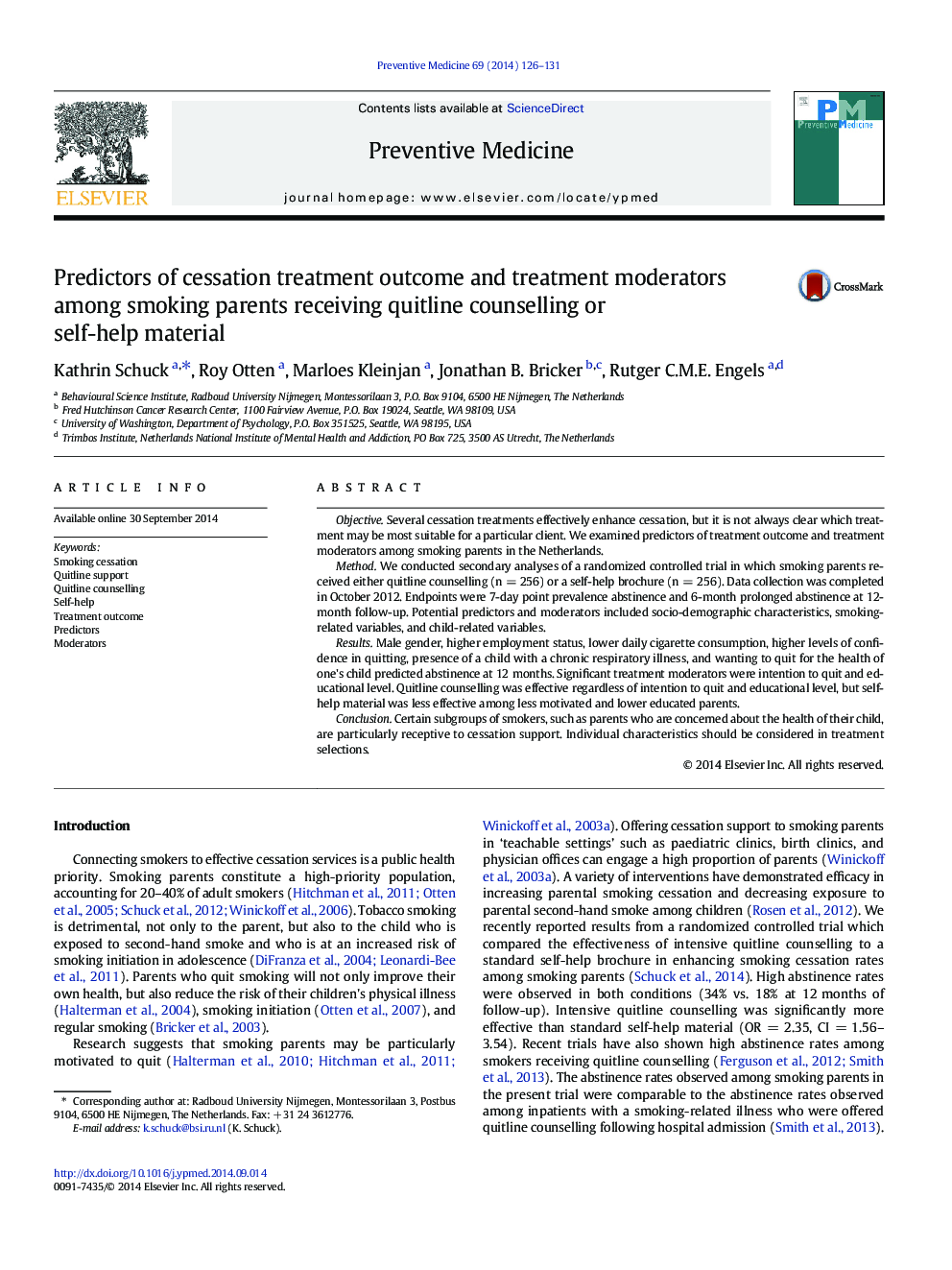| کد مقاله | کد نشریه | سال انتشار | مقاله انگلیسی | نسخه تمام متن |
|---|---|---|---|---|
| 6046909 | 1581645 | 2014 | 6 صفحه PDF | دانلود رایگان |
- We examined predictors and moderators of cessation treatment outcome among parents.
- Several characteristics predicted cessation among smoking parents.
- Quitline counselling was effective regardless of intention to quit and SES.
- Self-help material was less effective among less motivated and lower SES parents.
- Individual characteristics should be considered in treatment selections
ObjectiveSeveral cessation treatments effectively enhance cessation, but it is not always clear which treatment may be most suitable for a particular client. We examined predictors of treatment outcome and treatment moderators among smoking parents in the Netherlands.MethodWe conducted secondary analyses of a randomized controlled trial in which smoking parents received either quitline counselling (n = 256) or a self-help brochure (n = 256). Data collection was completed in October 2012. Endpoints were 7-day point prevalence abstinence and 6-month prolonged abstinence at 12-month follow-up. Potential predictors and moderators included socio-demographic characteristics, smoking-related variables, and child-related variables.ResultsMale gender, higher employment status, lower daily cigarette consumption, higher levels of confidence in quitting, presence of a child with a chronic respiratory illness, and wanting to quit for the health of one's child predicted abstinence at 12 months. Significant treatment moderators were intention to quit and educational level. Quitline counselling was effective regardless of intention to quit and educational level, but self-help material was less effective among less motivated and lower educated parents.ConclusionCertain subgroups of smokers, such as parents who are concerned about the health of their child, are particularly receptive to cessation support. Individual characteristics should be considered in treatment selections.
Journal: Preventive Medicine - Volume 69, December 2014, Pages 126-131
